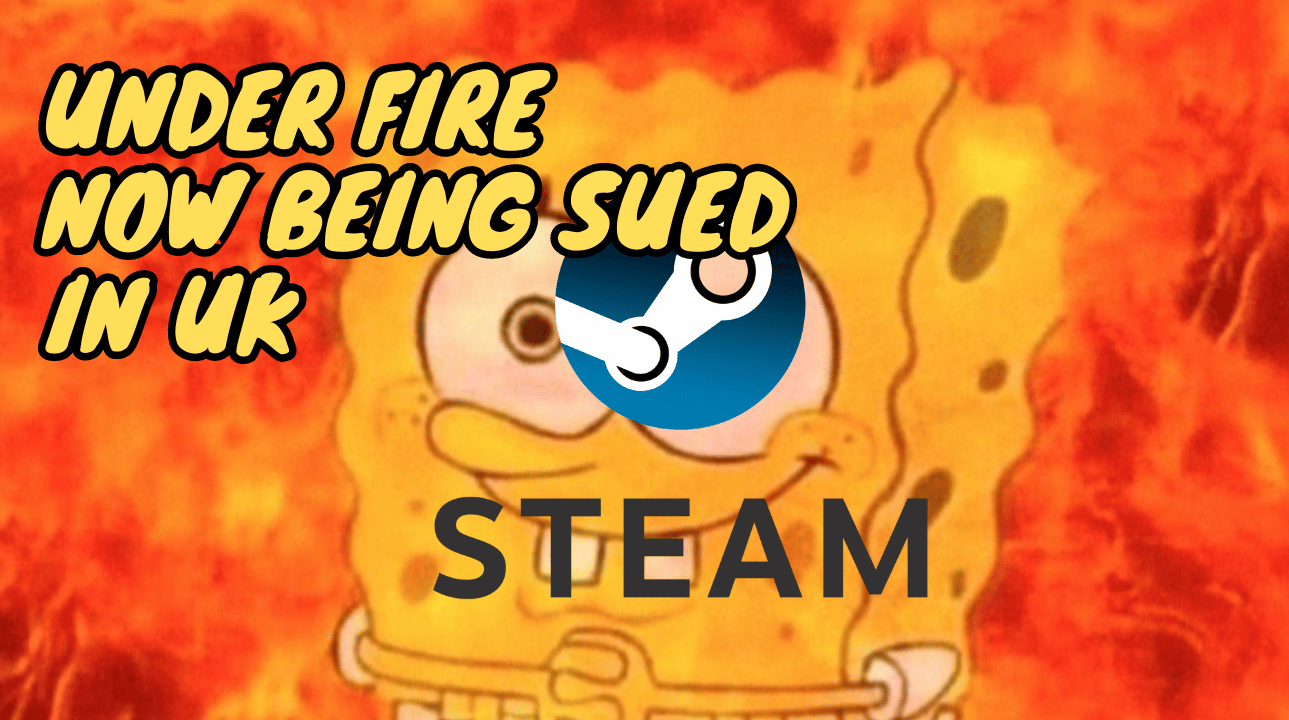Valve Corporation is under fire once again.
It was not a long time ago since Valve had a major issue in Vietnam; now a collective action lawsuit has been filed against Valve by UK digital rights activist Vicki Shotbolt.
The claim, submitted to the UK’s Competition Appeal Tribunal, alleges that Valve’s business practices amount to an abuse of its dominant market position, violating UK competition law. Shotbolt asserts that Valve’s conduct has led to UK consumers being overcharged for PC games, with potential compensation claims reaching up to £656 million.
With tagline, Steam You Owe Us, If the claim is successful, you could be eligible for up to £44 in compensation if you paid for PC video games, or add-on game content, from 5 June 2018 and live in the UK. Consumers who live in Scotland, may be eligible to receive more compensation.
Vicki is a leading campaigner for children’s digital rights and has over 20 years of experience working at a senior level in national charities. She is the founder and CEO of Parent Zone, an organisation that works with families, government and companies to improve the lives of children who live in an increasingly digital world.
The Core Allegations Against Valve
The lawsuit, which is being handled by legal firm Milberg London LLP, focuses on three main issues: price parity clauses, restricted competition for downloadable content (DLC), and excessive commission rates. These practices, according to the suit, have artificially inflated prices and limited consumer choice.
Price Parity Clauses
The suit claims that Valve imposes price parity clauses on game publishers and developers, preventing them from selling their titles at lower prices on rival platforms. This practice allegedly restricts competition and forces consumers to pay higher prices for games purchased through Steam, Valve’s digital distribution service. The suit states that Valve’s price parity policy means that even if a game is cheaper elsewhere, consumers are often unable to take advantage of those savings.
Restricting Competition in the DLC Market
The second major point in the lawsuit is Valve’s alleged restriction on the sale of DLC for Steam games on rival platforms. The claim argues that this practice further restricts competition, as it compels consumers to buy all related game content exclusively through Steam. This not only limits consumer choice but also prevents other digital storefronts from competing effectively.
Excessive Commission Rates
Finally, the lawsuit targets Valve’s commission rate, which can be as high as 30%. The suit argues that this excessive fee has led to inflated prices on Steam, making PC games and DLC more expensive for consumers. This practice, the lawsuit claims, is an abuse of Valve’s dominant market position and has resulted in substantial financial harm to UK gamers.
Impact on UK Consumers
According to the collective action claim, approximately 14 million people in the UK have been affected by Valve’s practices, with each individual potentially entitled to compensation ranging from £22 to £44. Shotbolt’s campaign seeks to stop what she describes as Valve’s “unlawful conduct” and ensure that affected consumers receive fair compensation.
“Valve is rigging the market and taking advantage of UK gamers,” Shotbolt said. “This lawsuit is an attempt to stop this unlawful conduct and help people get back what they are owed.”
Legal Precedents and Similar Cases
This is not the first time Valve has faced legal challenges over its business practices. Similar accusations were made in a California antitrust class action lawsuit filed by five gamers in 2021, and again by Wolfire Games later that year. In these cases, plaintiffs also alleged that Valve’s price parity requirements and commission rates stifled competition and led to higher prices for consumers.
Notably, the legal firm representing Shotbolt, Milberg London LLP, has experience in handling such cases. The firm previously filed a lawsuit against Sony in 2022, accusing it of abusing its market power in a manner similar to the allegations against Valve. Despite Sony’s objections, a tribunal allowed the suit to proceed, indicating a possible precedent for the current case against Valve.
Valve’s Defense and Public Statements
Valve has consistently denied allegations that it enforces restrictive price parity clauses. According to Valve’s publicly available partner documentation, the company advises developers and publishers to avoid giving Steam customers a worse deal than Steam Key purchasers. However, the documentation also states that Valve reviews initial pricing and proposed pricing adjustments, which has drawn criticism for a lack of transparency.
In 2019, Tim Sweeney, CEO of Epic Games, publicly criticized Valve’s pricing policies, highlighting the lack of clarity around Steam’s price parity expectations. Sweeney noted that multiple developers had informed him that Valve required long-term price parity, excluding temporary sales.
If the lawsuit succeeds, it could have significant implications for Valve and the broader digital distribution market. A ruling against Valve might force the company to alter its business practices, potentially leading to more competitive pricing and greater consumer choice in the PC gaming market.
The current claim against Valve in the UK is likely to take a considerable amount of time before any significant developments occur. According to the FAQ, disputes of this magnitude often require several years to reach a resolution.

